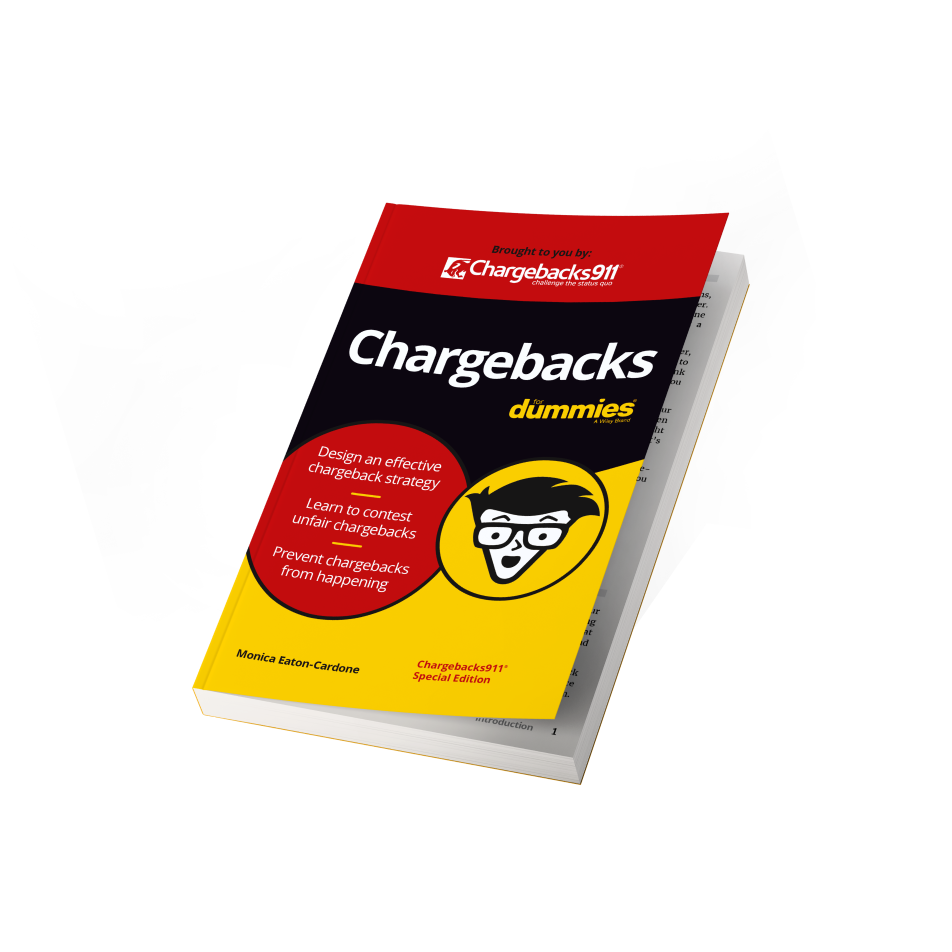So, You Receive a Dispute. But… Can You Dispute a Dispute Claim?
Getting a dispute notification can feel like a punch in the gut.
Every time you receive a chargeback from a cardholder, you’re assessed a chargeback fee by your acquiring bank. If you lose the dispute, you also stand to lose out on revenue and merchandise.
But what happens when the notification you receive is a result of friendly fraud? What if you have compelling evidence to prove the dispute is invalid?
Like pulling the reverse card in a game of Uno… can you dispute a dispute claim?

Recommended reading
- Chargeback Rebuttal Letters: Templates & Tips for Responses
- Pre-Arbitration Chargeback Process: How do Pre-Arbs Work?
- Chargeback Reversal: 6 Simple Steps to Get Your Money Back
- What is Compelling Evidence? Examples & Tips to Win Disputes
- How to Fight Chargebacks | Recover Revenue in 4 Basic Steps
- Maximize Your Chargeback Win Rate: 5 Tips From the Experts
Can You Dispute a Dispute?
Yes. A merchant can submit a response to a dispute if they believe the cardholder’s claim is invalid.
In short, yes; you can dispute a dispute.
As a refresher, the chargeback life cycle begins when a customer files a dispute claim against one or more transactions with their issuing bank. The issuer then reviews and investigates the claim. If it appears to hold water, the issuer will formally file a chargeback against you.
Your acquirer will then inform you of the chargeback by forwarding you information about the dispute in the form of a chargeback reason code. It’s at this point where you can choose how to proceed.
If you choose to accept the dispute, the transaction will be reversed in favor of the cardholder. You’ll lose out on the sale, plus any inventory involved in the transaction. Your acquirer will also assess a non-refundable chargeback fee, which typically ranges between $20 and $100 per dispute.
If you choose to challenge it, though, you’ll need to engage in a highly-regulated and time-sensitive process known as representment.
How to Dispute a Dispute: the Chargeback Representment Process
For a merchant to respond to a dispute, they’ll need to provide evidence and additional documentation, and submit their information within strict time limits set by the card networks.
So, how can you dispute a dispute? The answer is through a process called representment.
Representment gives you, the merchant, the opportunity to challenge a dispute. There are a variety of reasons why you may want to do this. Maybe you believe the chargeback is invalid because you upheld your end of the bargain. Or, perhaps you know that the dispute is outright fraudulent; maybe the cardholder signed for delivery, yet claimed they never received their order.
In any case, if you decide to dispute a dispute, you’ll need to brace yourself for a few realities:
It’ll typically take the cardholder’s issuing bank anywhere from 2 to 12 weeks to review your representment package. Two outcomes are possible: either the issuer accepts your dispute response and unwinds the dispute to your benefit… or they reject it and uphold the chargeback in the cardholder’s favor.
Pushing back against cardholder disputes is an uphill battle. You’re almost always assumed guilty until you prove yourself to be innocent; in fact, merchants surveyed for the 2024 Chargeback Field Report say that, while they win about 45% of the chargebacks they contest, they recover less than one-fifth of all the revenue disputed.
In other words: you should be prepared for the issuer to reject your dispute response.
What Happens if Dispute Response is Rejected?
Even at this point, you have additional options. The simpler choice is to accept the issuer’s response. If you opt for this course of action, you’ll lose the dispute, and the original chargeback filed by the cardholder will be upheld.
You can also choose to escalate to arbitration. This is a process by which the card network steps in to resolve the dispute by serving as a neutral arbiter. Before the card network makes a ruling, both you and the issuer will be given the opportunity to submit additional evidence.
Arbitration is the final step in the dispute process. In an arbitration chargeback, the card network’s decision is binding. It can also be expensive; if you lose, you may have to cough up $500 or more in fees.
The significant cost associated with arbitration, coupled with its unfavorable odds, means that it’s a decision you shouldn’t take lightly. If your evidence wasn’t strong enough to win your initial representment, you may not be able to force a different outcome in arbitration.
Aside from high-margin, high-volume transactions (stretching into the four and five figures) that make the cost financially feasible, most merchants make the understandable decision to forgo this last step.
Learn more about arbitration chargebacksSome card networks allow the losing party to file a one-time appeal against the arbitration ruling. However, an appeal can take several months to process. It will also cost extra; as of this writing, Visa charges $1,000 per appeal, for instance.
Best Practices for Dispute Responses
As you can see, challenging a dispute at any stage of the chargeback life cycle is a time-consuming — and headache-inducing — process. But, while some chargebacks are probably inevitable, the financial losses aren’t. Here are some general principles you can follow to preserve your revenue:
Every chargeback you prevent from happening is one you don’t have to push back against. While you can’t stop all cardholder disputes, you can significantly reduce fraud rates by deploying an array of complementary fraud detection and fraud prevention tools at checkout.
Using address verification services (AVS), multi-factor authentication, velocity checks, and biometrics in combination with one another, for instance, can make it harder for fraudsters to make unauthorized purchases, take over legitimate customer accounts, or steal user identities. Investments in security measures like encryption and tokenization can help you safeguard customer information, even in the case of a data breach.
Combining these tools with AI-enabled behavioral analytics tools, transaction monitoring software, or fraud scoring solutions can similarly help you and your fraud analysts make higher-quality, data-informed decisions about which transactions to approve and which to deny.
Representment is often your only chance to share your side of the story, so you’ll want to offer the most compelling evidence possible. This means submitting a representment package that addresses the allegations implied by the chargeback reason code you received.
Of course, responding within the stipulated deadline should be your first priority. Most acquirers automatically reject late representment submissions, no matter how compelling the package may be. So, act as quickly as you can after receiving a chargeback notification.
If you’re contending with dozens or hundreds of cardholder disputes at once, you may not have the bandwidth to challenge all of them. To recover as much revenue as possible, you’ll have to implement a triaging system in which you prioritize either the highest-value disputes or the ones you’re most likely to win first.
Besides, some disputes that involve third-party fraud or errors on your end may not be challengable at all. In some instances, you may have little option but to accept the loss and turn your focus to prevention instead.
There’s nuance when it comes to friendly fraud chargebacks, too. While you should dispute all invalid cardholder disputes, chargebacks that proceed to pre-arbitration or arbitration may not be worth contesting, for reasons discussed earlier.
Get Help Disputing Disputes
The chargeback representment process is full of arcane rules, arbitrary deadlines, and other complexities. As a merchant, this can be frustrating, especially since you’re an expert in running your business, not in challenging cardholder disputes.
So, why not let the experts help?
At Chargebacks911®, our dual-layered dispute prevention and representment solutions can help you detect, block, and challenge the disputes that come your way. Reach out to us for a no-obligation ROI analysis today.
FAQs
How do I dispute a disputed charge?
You can dispute a disputed charge as a merchant by engaging in chargeback representment. This is a heavily-regulated and time-sensitive process in which you have the opportunity to share your side of the story by submitting compelling evidence accompanied by a rebuttal letter
Can a disputed charge be reversed?
Yes, a disputed charge can be reversed if, during the chargeback representment process, the merchant provides compelling evidence to the issuer that proves a transaction is valid and should be upheld.
What happens if you falsely dispute a charge?
Falsely disputing a charge is considered a fraudulent activity. Perpetrators may be blacklisted by merchants, lose cardholder privileges or, less commonly, face legal penalties.
Can disputes come back?
Yes, disputes can come back if either the merchant, cardholder, or issuer uncovers additional evidence to back up their initial claims.
Can you refund a disputed charge?
Yes, a merchant can refund a disputed charge before it escalates into a chargeback.














